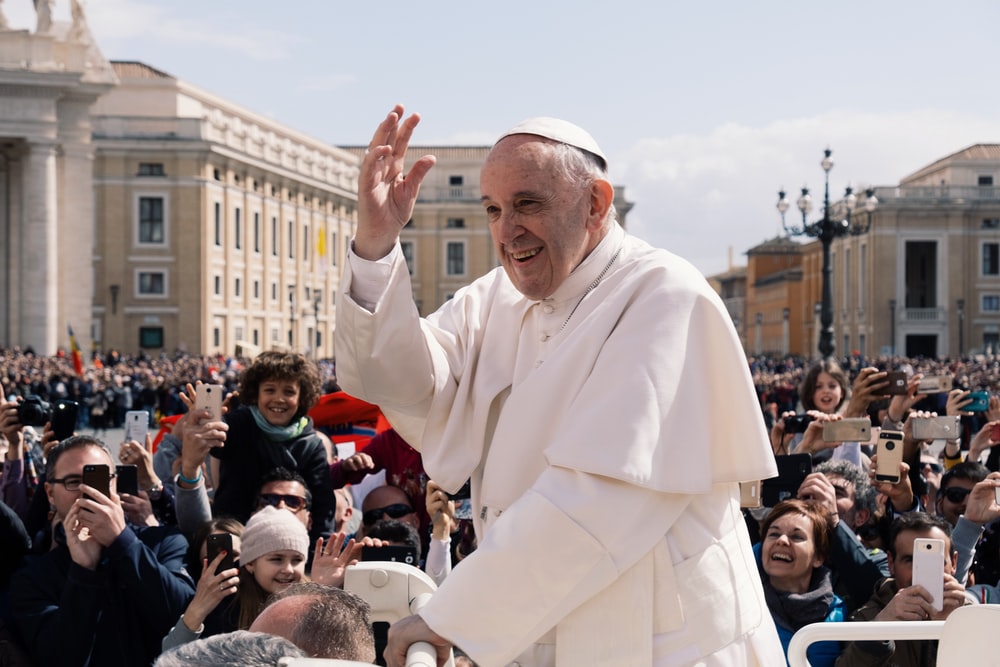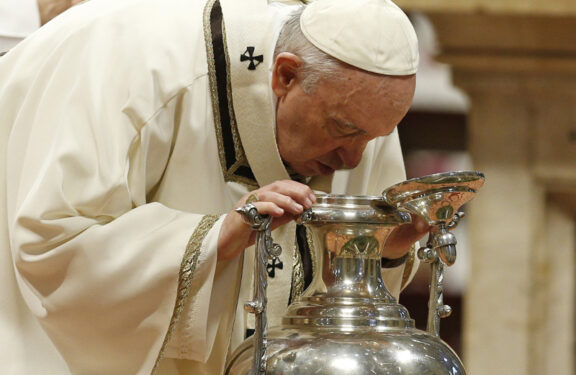The Holy Catholic Church is convoked in Synod. The theme of the Synod is “For a Synodal Church: Communion, Participation, and Mission.” It has officially opened on the 9th – 10th October 2021 in Rome and on the 17th of October in each particular Church. It is in preparation for the XVI Ordinary General Assembly of the Synod of bishops, in October 2023.
With this invitation, Pope Francis invites the entire Church to reflect on a theme that is decisive for its life and mission. God wills that all Christians to be united in Him and walk together to establish His Kingdom here on earth. This is the synodality Holy Father wants to actualize in his vision. This journey, which follows in the wake of the Church’s “renewal” proposed by the Second Vatican Council, is both a gift and a task: by journeying together and reflecting together on the journey that has been made, the church will be able to learn together Her experience which processes can help Her to live in communion, to achieve participation, to open herself to mission. Our ‘journeying together’ is in fact what most effectively enacts and manifests the nature of the Church as the pilgrim and missionary people of God.
It is apt to know how does this journeying together which takes place today on different levels allow the Church to proclaim the Gospel in accordance with the mission entrusted to her and what steps does the spirit invite us to take in order to grow as a synodal Church.
Addressing this question together requires listening to the Holy Spirit, who like the wind “blows where it wills; you can hear the sound it makes, but you do not know where it comes from or where it goes” (Jn 3:8), remaining open to the surprises that the Spirit will certainly prepare for us along the way. Thus, a dynamism is activated that allows us to begin to reap some of the fruits of a synodal conversion, which will progressively mature. These are objectives of great importance for the quality of ecclesial life and for accomplishing the mission of evangelization, in which we all participate by virtue of our Baptism and Confirmation.
A special Synod
Synodality indicates walking together and listening to one another but above all to the Holy Spirit. To deepen this essential characteristic of the Church, the upcoming synod is unlike any previous one. It starts with, and involves all the faithful at local Churches across the world, promising to listen to all, especially to laypeople. That is why this Synod is a 2-year process, starting from October 10, 2021, to October 2023.
The diocesan listening phase will run until April 2022 and will be followed by a continental phase from September 2022 to March 2023. The final “universal Church phase” will culminate in the traditional assembly of the Synod of Bishops in the Vatican in October 2023.
The protagonist of the Synod – the Spirit
Pope Francis in occasions clarified, how the synodality of the Church is achieved, namely, through communion, participation, and mission. He also pointed out the dangers it can run into, as well as the opportunities it offers.
“In the one People of God, therefore, let us journey together, in order to experience a Church that receives and lives this gift of unity, and is open to the voice of the Spirit,” Pope Francis said, stressing that the Synod is an “ecclesial moment”, not a parliament or an investigation into opinions, but “an ecclesial moment” whose protagonist is the Holy Spirit. “Without the Spirit, there is no Synod,” he stressed.
Communion, participation, mission
Explaining the Synod’s three key words - communion, participation, and mission –Francis said that communion and mission describe the mystery of the Church. Communion expresses the very nature of the Church, according to the Second Vatican Council.
According to Saint Paul VI “communion, that is, cohesion and interior fullness, in grace, truth and collaboration… and mission, that is, apostolic commitment to the world of today.” St. John Paul II stressed that koinonia gives rise to the Church’s mission of serving as a sign of the human family’s intimate union with God. For this reason, Pope Francis said, Synods must be well prepared, especially at the local level with the participation of all.
All are called to Participate
Pope Francis pointed out that ‘communion’ and ‘mission’ can risk remaining somewhat abstract, unless synodality is concretely expressed at every step of the synodal journey and activity, encouraging real involvement on the part of each and all. All the baptized are called to take part in the Church’s life and mission.”
He acknowledged the frustration and impatience felt by many pastoral workers, members of diocesan and parish consultative bodies, and women, who frequently remain on the fringes. “Enabling everyone to participate is an essential ecclesial duty!” He stressed, adding, it is an indispensable ecclesial commitment based on the “identity card” of the baptism.
Three risks to avoid
The Pope warned that a Synod can run the risk of being a mere formal external event, instead of being “a process of authentic spiritual discernment that we undertake, not to project a good image of ourselves, but to cooperate more effectively with the work of God in history.” For this, “we need content, means, and structures that can facilitate dialogue and interaction within the People of God, especially between priests and laity.”
He noted that at times there is a type of “elitism” among the clergy that distances them from the laity, which makes them the “lord of the house” and not a shepherd. This, the Pope said, requires changing certain overly vertical, distorted, and partial visions of the Church, the priestly ministry, the role of the laity, ecclesial responsibilities, roles of governance, and so forth.
Another risk that a Synod can run into is becoming intellectual, offering learned but abstract approaches to the problems of the Church and the evils in our world, which are far removed from the reality of the holy People of God and the concrete life of communities around the world.
A third danger that a Synod should avoid, the Pope said, is the temptation to complacency, which says, “we have always done it this way” and it is better not to change. The word ‘complacency’ “is a poison in the life of the Church”. People with such an attitude apply old solutions to new problems. The Holy Father stressed that the synodal process should involve the local Churches, in different phases and from the bottom up, in an exciting and engaging effort that can forge a style of communion and participation directed to mission.”
Three opportunities
Pope Francis pointed out that the synodal process of encounter, listening, and reflection help the People of God, the Church, to recognize at least three opportunities. First, it must move not occasionally but structurally towards a synodal Church, where all can feel at home and participate.
Second, the Synod offers us the opportunity to become a listening Church, to break out of our routine in order to stop and listen, firstly to the Spirit in adoration and prayer, and then to our brothers and sisters, their hopes, the crises of faith around the world, the need for renewed pastoral life.
Keeping in mind that God’s style is one of closeness, compassion and tenderness, the Pope said the Synod is also an occasion for the People of God not to be aloof but to become a Church of closeness by her very presence, bandaging wounds and healing broken hearts with the balm of God.
Not another Church but a different Church
For this, the Holy Father said, we need the ever-new breath of God, the Spirit, who sets us free from every form of self-absorption, revives what is moribund, loosens shackles, and spreads joy. “There is no need to create another Church, but to create a different Church,” the Pope said citing Dominican priest Fr. Yves Marie-Joseph Congar. “For a ‘different Church’, the Pope urged all to invoke the Holy Spirit with greater fervour and frequency and humbly listen to Him.


